Filter by
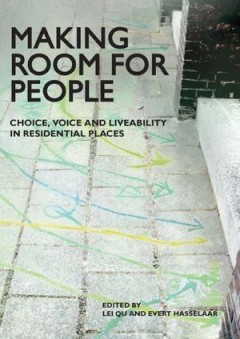
Making Room for People
Making Room for People elaborates on preferences in housing. It explores how users, occupants, and citizens can express their needs, searching for the enhancement of individual choice and control over their residential environment, and the predicted positive spin-off’s for urban collectives. The central question is: What are the conditions under which an increase of people’s choice and voic…
- Edition
- -
- ISBN/ISSN
- 9789085940326
- Collation
- -
- Series Title
- -
- Call Number
- -
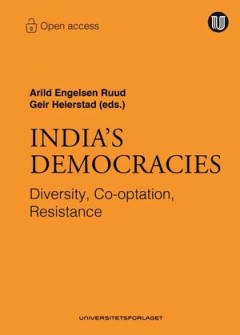
India’s Democracies
This volume is about India’s deep and complex relationship with its chosen form of government. It is an interdisciplinary book with approaches drawn from history, anthropology, sociology, political science and social geography. We believe this volume provides new perspectives on how to approach and analyse the complexity of India’s democracy. The book’s unfortunate publishing history also…
- Edition
- -
- ISBN/ISSN
- 9788215026886
- Collation
- -
- Series Title
- -
- Call Number
- -
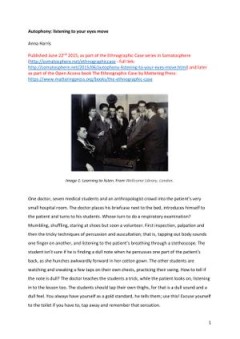
3. Autophony Listening To Your Eyes Move
I observed many instances of self-percussion during my fieldwork researching how listening to sounds is learned, taught and practiced in a Melbourne medical school and it’s connected teaching hospital. The students were sounding out their own bodies; practicing the technique while also feeling “dull” or “resonant” on their own body. This knowledge was then to be applied during their e…
- Edition
- -
- ISBN/ISSN
- 9780995527744
- Collation
- -
- Series Title
- -
- Call Number
- -
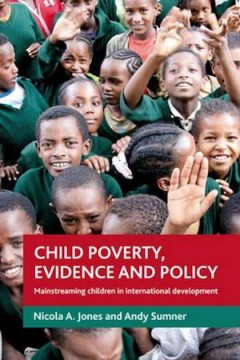
Child Poverty, Evidence and Policy : Mainstreaming Children in International …
This book is about the ideas, networks and institutions that shape the development of evidence about child poverty and wellbeing, and the use of such evidence in development policy debates.
- Edition
- -
- ISBN/ISSN
- 9781847424464
- Collation
- -
- Series Title
- -
- Call Number
- -
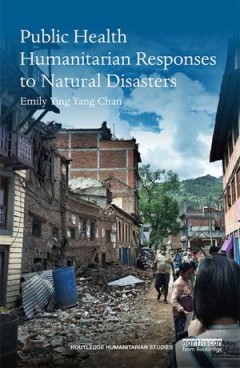
Public Health Humanitarian Responses to Natural Disasters
The pressure of climate change, environmental degradation, and urbanisation, as well as the widening of socio- economic disparities have rendered the global population increasingly vulnerable to the impact of natural disasters. With a primary focus on medical and public health humanitarian response to disasters, Public Health Humanitarian Responses to Natural Disasters provides a timely critica…
- Edition
- -
- ISBN/ISSN
- 1317357442
- Collation
- -
- Series Title
- -
- Call Number
- -
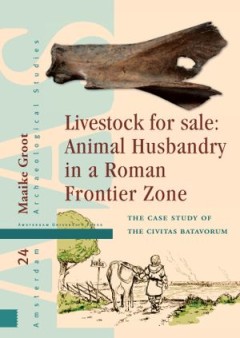
Livestock for Sale Animal Husbandry in a Roman Frontier Zone
The civitas Batavorum was a settlement on the north-western frontier of the Roman Empire, and it is now the site of numerous archaeological excavations. This book offers the most up-to-date look yet at what has been discovered, using the newest archaeological techniques, about the town and its economy, its military importance, and the religious and domestic buildings it held. It will be essenti…
- Edition
- -
- ISBN/ISSN
- 9789048530281
- Collation
- -
- Series Title
- -
- Call Number
- -

Disputing Citizenship
This unique book presents a new perspective on citizenship by treating it as a continuing focus of dispute. The authors develop a view of citizenship as always emerging from struggle through an exploration of the entanglements of politics, culture and power that are both embodied and contested in forms and practices of citizenship. This book will mainly appeal to scholars and students engaged b…
- Edition
- -
- ISBN/ISSN
- 9781447312529
- Collation
- -
- Series Title
- -
- Call Number
- -
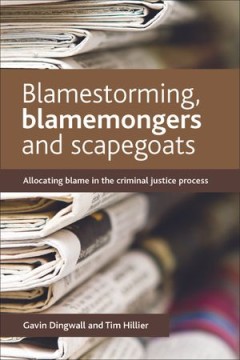
Blamestorming, Blamemongers and Scapegoats : Allocating Blame in the Criminal…
We live in a society that is increasingly preoccupied with allocating blame: when something goes wrong someone must be to blame. Bringing together philosophical, psychological, and sociological accounts of blame, this is the first detailed criminological account of the role of blame in which the authors present a novel study of the legal process of blame attribution, set in the context of crimi…
- Edition
- -
- ISBN/ISSN
- 9781447305002
- Collation
- -
- Series Title
- -
- Call Number
- -
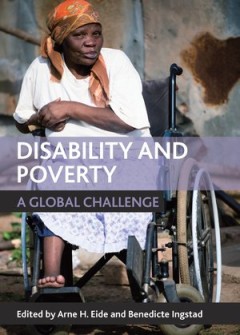
Disability and Poverty A Global Challenge
This book is about being disabled and being poor and the social, cultural and political processes that link these two aspects of living. Environmental barriers, limited access to services and discriminatory attitudes and practice are among key elements that drive disabled people into poverty and keep them there. 'Disability and poverty' explores the lived realities of people with disabilities f…
- Edition
- -
- ISBN/ISSN
- 9781847428851
- Collation
- -
- Series Title
- -
- Call Number
- -

The governance of female drug users Women's experiences of drug policy
Challenging popular misconceptions of female users, this book is the first to examine how female drug user's identities, and hence their experiences, are shaped by drug policies.
- Edition
- -
- ISBN/ISSN
- 9781847426727
- Collation
- -
- Series Title
- -
- Call Number
- -
 Computer Science, Information & General Works
Computer Science, Information & General Works  Philosophy & Psychology
Philosophy & Psychology  Religion
Religion  Social Sciences
Social Sciences  Language
Language  Pure Science
Pure Science  Applied Sciences
Applied Sciences  Art & Recreation
Art & Recreation  Literature
Literature  History & Geography
History & Geography